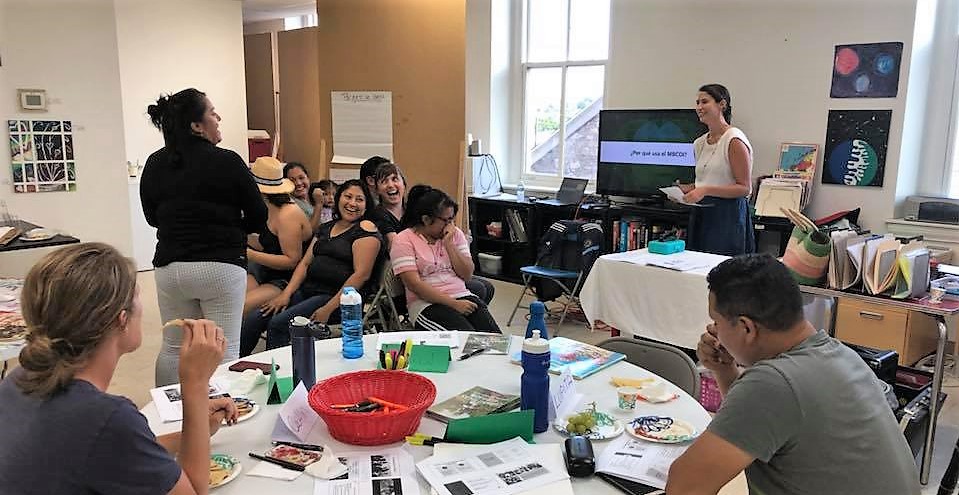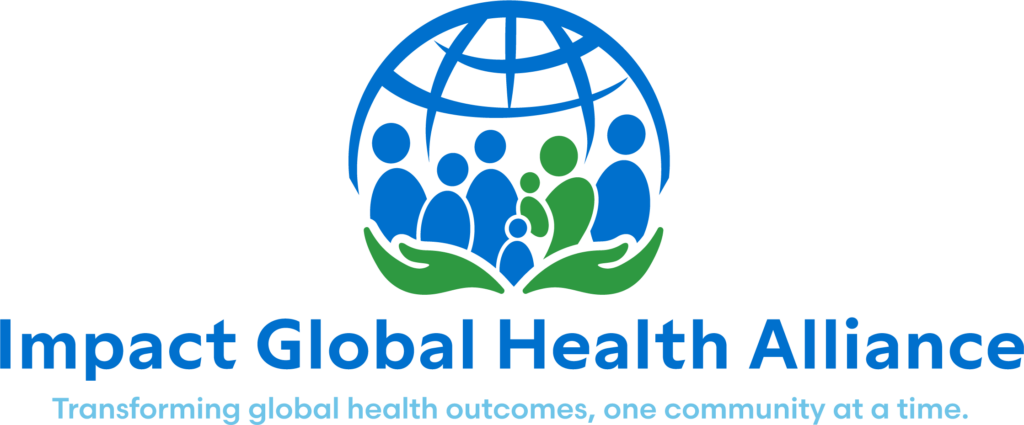CBIO as a blueprint of community healthcare systems.
In June, Impact Global Health Alliance Program & Operations Manager, Barbara Muffoletto, MPH designed and conducted a workshop for the Centro de Cultura, Arte, Trabajo y Educación (CCATE) about our CBIO Methodology (Census-Based, Impact-Oriented Methodology). CCATE is a new partner organization that seeks to empower the Hispanic community in Norristown, Pennsylvania. This partnership stems from Impact Global Health Alliance Global’s success stories in promoting health services and education in partner communities. We have been providing health education in developing countries globally during the last 35 years. Having heard of our stunning results in reducing child and maternal mortality using our CBIO Methodology, CCATE hopes to learn, reflect and emulate the same approach to tackle specific health challenges in their own Latinx and immigrant communities.
Turn out: An active audience
CCATE is fueled by the belief in the ability of people to learn, grow and rise above their circumstances. CCATE opened its doors just six years ago with providing homework help to students one day a week. Now, CCATE reaches hundreds of people in Norristown every year with daily after school programming, cultural events, and classes for adults. Looking to the future, CCATE sees a growing need to improve the health of Latinx living in Norristown. Before the workshop, CCATE had already started looking into solutions to address childhood obesity, such as community gardens and cooking classes. They were excited about CBIO because of the way it uses data to increase the impact of programs by focusing efforts on issues specific to the community. CCATE was an active audience that wanted to know how the CBIO system works. They also expressed interest in the possibility of CCATE being able to demonstrate its impact and gain more support for its programs.

Day 2 of the workshop started with a musical chairs game to practice what they learned during the CBIO Workshop
“CCATE is powered by volunteers actively working to improve their community,” said Barbara, “the members are committed to lifting up each other and their community, and they are having amazing results. This kind of collaboration and care for their neighbors renews my belief that the power for change lies within the people.” Participants showed a deep appreciation of the training and left with a more complete understanding of the CBIO methodology and how it can be implemented in Norristown. Participants were eager to learn more about Impact Global Health Alliance success stories of community-based health interventions using CBIO in different settings.
The training centered around four main points regarding the CBIO Methodology: the central components, its importance, the step-by-step process, and its benefits in program design and measurement. Participants were curious and engaged, sharing ideas and reflecting on how CCATE’s health program could look based on Impact Global Health Alliance’ methodology. Participants of the CBIO workshop showed an appreciation for the Care Group model that Impact Global Health Alliance has incorporated into projects in Guatemala and Kenya. CCATE members see care groups working well within their community to help in bringing more families into the CCATE community.
Using the Care Group Model
Using the care group model, Barbara helped alleviate concern that the new program would only serve those already engaged and supported by CCATE. At the end of the discussion, Obed, the Director of CCATE, expressed that he sees their incoming program as focusing primarily on prevention. CCATE hopes to change habits and behaviors rather than treating already-present diseases without losing sight of the prevalent diseases.

Impact Global Health Alliance’ Barbara Mufoletto explains the Care Group model at workshop about our CBIO methodology.
Community Appreciation for CBIO
The parents, volunteers and professionals who attended the workshop had a better understanding of how knowing and using the total number of people in a program or a community is important to show results and impacts. There seemed to be greater understanding of how data can be used to help the community and guide program development. CCATE hopes to adapt the methodology to the domestic context with impact and program design centering around issues other than mortality while maintaining its rigor. The next step is for CCATE to select their health focus and target population.
Takeaway for CCATE: The way forward! Empowering households and communities
CCATE is currently developing a participatory research center led by Dr. Holly Link CCATE’s Director of Educational Programming Research. She also works as an adjunct professor at the University of Pennsylvania and Temple University. This center will allow youths and adults to do research on issues that impact their lives and share experiences. CCATE is making an effort to talk with parents about their role in helping their child succeed. They do so by helping to create a supportive home environment. The involvement of the entire family in the development of the child or teen is paramount to success.
Ideas for next steps
Ideas for next steps include formalizing a health committee. This step passes necessarily by setting clear expectations and mapping the CCATE community to better locate their beneficiaries. Experience shows that basic level of community empowerment is needed for partners and participants in the fight against health challenges. The bedrock for strong health systems rests on empowering communities to be involved and take charge of preventing diseases to improve health.
Looking for a way to know more about us? Check us out!
Stay connected with Impact Global Health Alliance by visiting our website, Facebook page, YouTube, and join us in our effort to save lives of women and children in forgotten communities by fostering personable and sustainable health services. Take action Now!
Written by Siddo Yacouba AbdoulAziz, Impact Global Health Alliance Global Digital Media/Marketing Intern.




